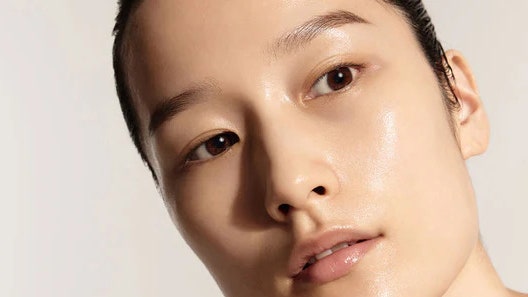Korean moisturizers are gaining popularity in the beauty industry for their unique ingredients and formulations that cater to a wide range of skin types and concerns. Dr. Chang and Dr. Park, both experts in dermatology, highlight some key ingredients found in Korean moisturizers that offer benefits such as hydration, anti-inflammatory effects, and skin turnover. These include allantoin, centella asiatica, ginseng, green tea, licorice root extract, snail mucin, and fermented yeast extracts. These ingredients are known for their hydrating, anti-inflammatory, and reparative properties, making them suitable for various skin types.
One of the main differences between Korean moisturizers and regular face moisturizers is the variety of options available for people with reactive skin types. Korean moisturizers are formulated to soothe and decrease inflammation, making them ideal for individuals with sensitive skin or inflammatory skin conditions like eczema or rosacea. Additionally, these moisturizers are well tolerated by the majority of people, making them suitable for a wide range of skin types. They may also contain alternative ingredients such as tea tree oil, propolis, and snail mucin to target specific concerns like acne.
In terms of formulation, Korean moisturizers may offer unique cosmetic elegance and textures that provide a sensory experience during application. For example, some moisturizers have fast absorption and airy, cloud-like textures that may appeal to those with oily skin. While Korean moisturizers offer a range of benefits and enjoyable application experiences, Dr. Chang emphasizes that they are not necessarily superior to US moisturizers. The choice of moisturizers is subjective and personal, and may differ based on individual preferences, age, and season. It’s important to choose a moisturizer that works best for your skin, regardless of its country of origin.
Dr. Park and Dr. Chang recommend Korean moisturizers for their unique ingredients and formulations that cater to various skin types and conditions. These moisturizers may contain botanicals like ginseng, green tea, and licorice root extract, as well as alternative ingredients like snail mucin and fermented yeast extracts. The soothing and anti-inflammatory properties of these ingredients make Korean moisturizers beneficial for individuals with sensitive skin or inflammatory skin conditions.
In conclusion, while Korean moisturizers offer a range of benefits and unique formulations, it’s essential to choose a product that works best for your skin type and concerns. Korean moisturizers are not necessarily superior to US moisturizers, and personal preferences, age, and season may influence your choice of moisturizer. Ultimately, the goal is to find a moisturizer that meets your skin’s needs and provides the desired results. Dr. Park and Dr. Chang suggest exploring Korean moisturizers for their diverse options and potential benefits, but emphasize that the choice ultimately depends on what works best for your skin.


